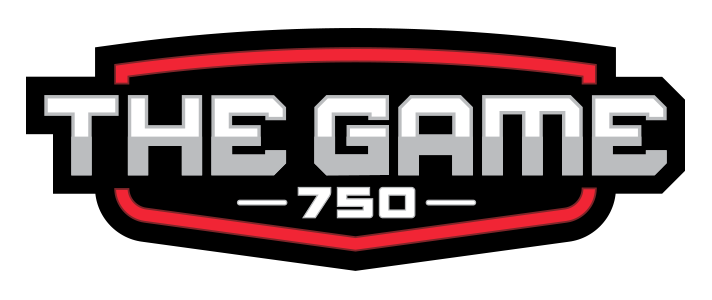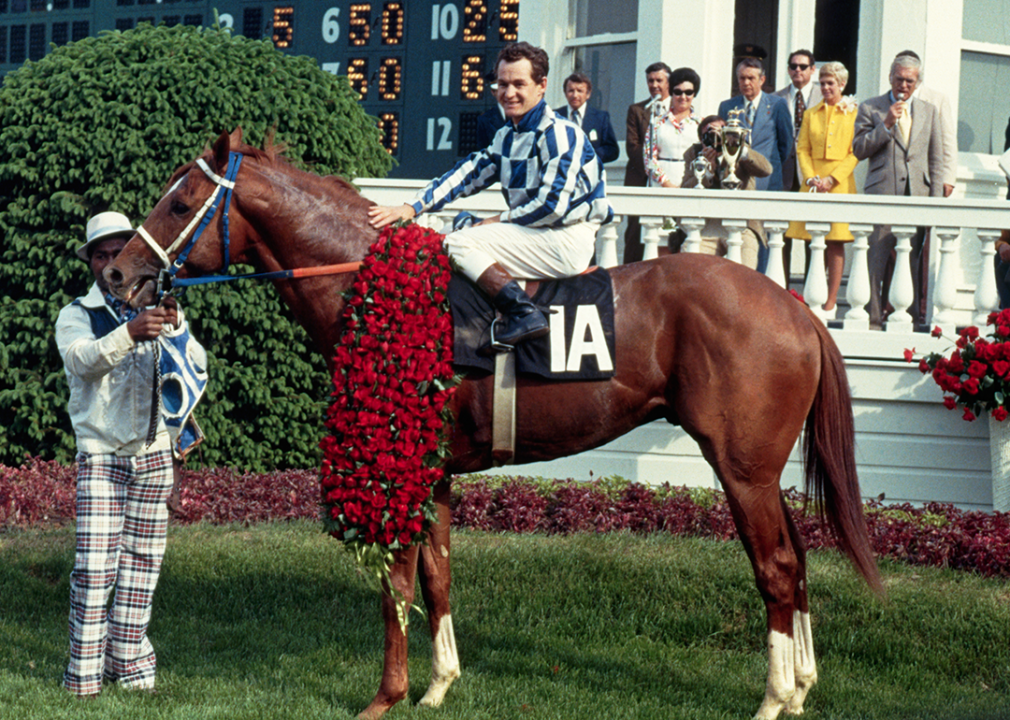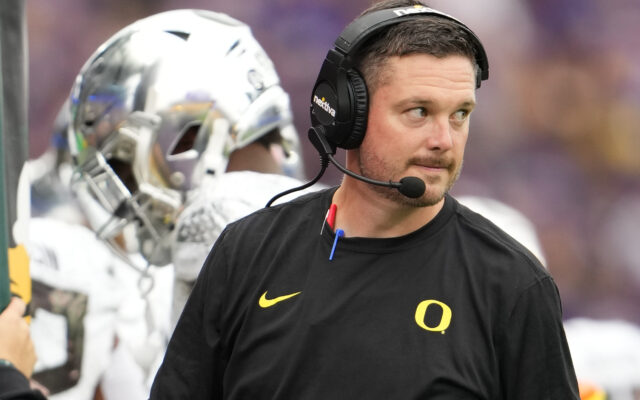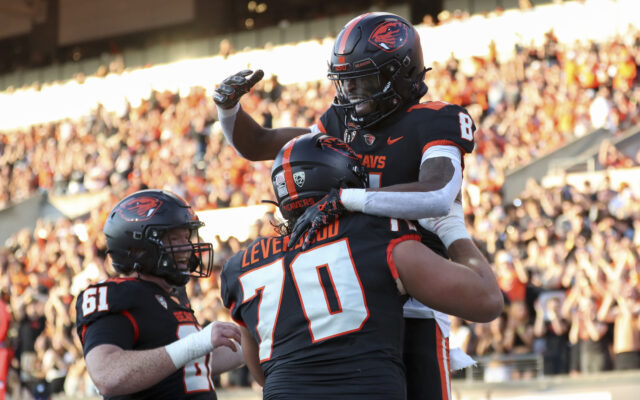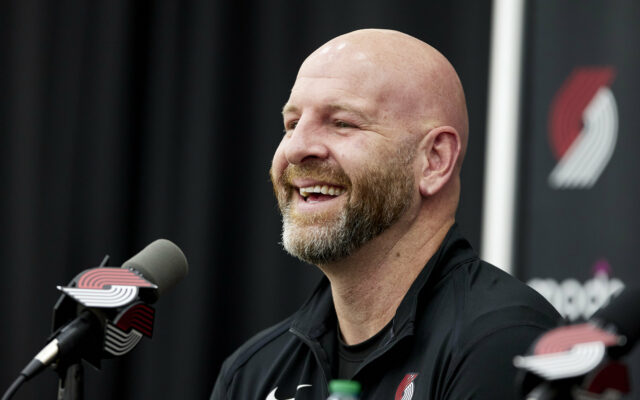Questions Remain After the Blazers Inactive Trade Deadline
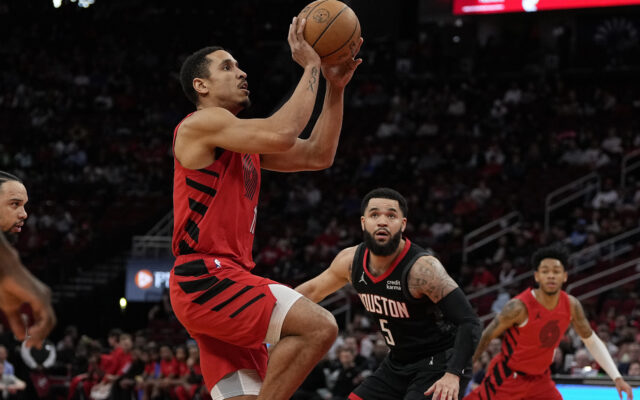
By Torey Jones
Contributor, 750 The Game
The NBA Trade Deadline has come and gone with the Portland Trail Blazers remaining inactive, making one small trade that landed them Delano Banton (a 6’8 guard) from the Boston Celtics for a top-55 protected second-round pick. The discussion around Malcolm Brogdon and his place on a team rebuilding around three young guards will push into the off-season.
There are a lot of questions arising from this year’s NBA trade deadline. An overlooked result of the Blazers’ inactivity is that they’re projected to be in the luxury tax next off-season if they keep Jabari Walker and Toumani Camara and use their two first-round picks (currently projected 5th and 12th). Portland should absolutely keep Walker and Camara, both of whom have provided great value for the Blazers as prospects picked in the late-2nd on draft night.
If the Blazers keep newly-acquired Delano Banton, they’re a projected $4.5 million over the luxury tax line of $171 million. This doesn’t include a potential Duop Reath contract, who was another good under-the-radar pickup this past off-season, or the Blazers’ two second-round picks that could bump that total even higher. The Blazers have ducked the tax multiple times under Jody Allen’s watch by dumping players such as Norman Powell, Robert Covington, and Skal Labissiere. This occurred when Portland was in “win-now” mode, and it’s a safe bet that this current ownership group will refuse to pay the luxury tax for a team in rebuild mode.
In an interview with Blazers’ reporters, Cronin had an interesting quote on their cap situation, saying, “(I) wanted to add some players to this roster … some guys who were on good contracts that were very manageable for our cap that we could continue to add to this roster”. This quote doesn’t reflect the reality of the situation, as the Blazers are in the tax and will have to shed salary while being incapable of adding to the roster because of their cap management.
That’s part of why it made sense to trade Malcolm Brogdon at this year’s deadline, as Portland could’ve received expiring contracts that would’ve come off the books at the end of the season. Without doing so, any salaries opposing teams must send back for Brogdon in the off-season will land on Portland’s books. Apparently, a market never materialized despite Chauncey Billups saying Brogdon had “lots of interest” and Cronin admitting he received “lots of offers.”
This leaves Cronin with a decision to make in the off-season. Either he trades one of Scoot Henderson, Shaedon Sharpe, Anfernee Simons, or Malcolm Brogdon, or the Blazers will have all four guards struggling to get enough minutes next season. It’s hard to envision Brogdon having a better trade market this summer, and with the Blazers being a projected tax team and it being more difficult to clear the books with a Brogdon trade, finding a deal that works becomes more challenging.
At the 2022 trade deadline, Cronin dumped Norman Powell and Robert Covington, trading him to the Los Angeles Clippers for a paltry trade package with the excuse of Cronin being out-leveraged due to the Blazers being above the luxury tax line and their need to make a trade to duck under it. Cronin put himself in the same position this off-season where he’ll have to trade a veteran to duck the luxury tax.
Portland will have to trade out even more salary if they wish to use roster-building tools such as the mid-level exception or a $8.8 million trade exception they got in the Damian Lillard trade while remaining below the tax line. That trade exception has more uses under the new CBA, as the monetary amount can be given to a free agent even if a team doesn’t have cap space. Cronin’s best trade of his tenure came when he used a trade exception to trade for Jerami Grant, getting great value in return.
But Cronin hasn’t managed the cap in a way where they can “continue to add to the roster,” as he claims, with the best route forward being to trade Brogdan for salary savings and future picks or young players that align with the timeline of this rebuild. It’s incredibly puzzling if Cronin wanted to keep Brogdan unless he thinks the guard will fetch better offers this off-season. Even then, if teams are willing to give up more asset capital in off-season deals, most offers will come with a trade-off of less cap flexibility for Portland.
The biggest issue with this past trade deadline is it feels like there’s a lack of a plan on how to move forward for this organization, and they now have to find solutions to problems they could’ve avoided by trading a single veteran at this year’s deadline. The biggest question after the deadline is how Cronin maneuvers the Blazers under the luxury tax this off-season while trying to add to the roster.
Torey Jones is a Trail Blazers contributor to 750TheGame.com. He is the founder of Blazers Uprise and his work can be found throughout the season on 750TheGame.com.
